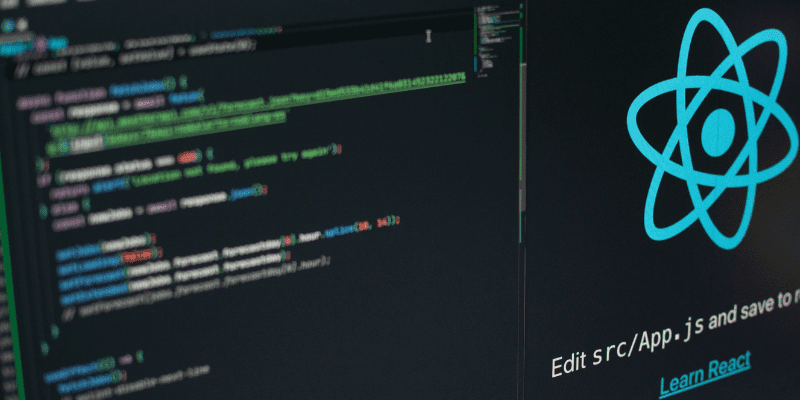Welcome to the next era of backend as a service! Imagine a reality where your application’s backend not only effortlessly handles intricate tasks but also adapts and learns from user interactions. This remarkable feat is achieved through the extraordinary power of Artificial Intelligence (AI). In this blog post, we will delve into how AI is reshaping Backend as a Service (BaaS) and ushering in novel prospects for developers and businesses alike.
Introduction to Backend as a Service (BaaS)
Backend as a Service (BaaS) is a cloud-based platform that empowers developers to create and manage mobile and web applications without the burden of handling the underlying infrastructure. BaaS providers furnish a suite of services designed for application development, testing, deployment, and scalability.
Often integrated with other cloud-based services such as Platform as a Service (PaaS) and Software as a Service (SaaS), BaaS can provide a comprehensive backend solution or complement an existing infrastructure.
BaaS’s popularity has surged as businesses transition to the cloud and the demand for mobile and web applications soars. In response, BaaS providers continuously innovate to keep pace with evolving application development trends.
One of these trends is the integration of Artificial Intelligence (AI) into BaaS. AI-infused BaaS platforms empower developers to create sophisticated applications that learn and evolve over time. This new generation of BaaS platforms is reshaping developers’ approach to app development and poised to revolutionize the industry.
Artificial Intelligence in BaaS
The presence of Artificial Intelligence (AI) is reshaping backend as a service (BaaS). AI-driven BaaS solutions are equipping businesses with the ability to automate tasks, optimize efficiency, and make informed decisions.
AI is fueling several features in BaaS solutions, including:
Automated task management: AI streamlines tasks such as provisioning, monitoring, and scaling, enhancing efficiency and diminishing the need for manual intervention.
Enhanced decision-making: AI-powered analytics yield insights into user interactions with your app or website, informing decisions about features, content, and design.
Augmented security: AI monitors user activity to identify potential threats, reinforcing data security.
Advantages of AI in BaaS
Artificial Intelligence (AI) is reshaping backend as a service (BaaS) to offer numerous benefits:
Task automation: AI automates various BaaS tasks like provisioning, scaling, and monitoring, affording developers more time to focus on other aspects.
Performance enhancement: AI optimizes BaaS performance by identifying and mitigating bottlenecks.
Enhanced security: AI bolsters BaaS security by promptly identifying and countering threats.
Elevated customer experience: AI tailors recommendations and services to enhance customer experience.
Challenges of Implementing AI in BaaS
Despite the evident advantages AI brings to BaaS, several challenges must be surmounted to fully harness its potential. A significant challenge is initiating AI integration. For numerous organizations, AI remains uncharted territory, making it challenging to justify the investment required for AI-powered BaaS.
Another hurdle is the demand for substantial data to make AI effective. Organizations lacking sufficient data or housing data across dispersed silos face difficulties. Additionally, even if organizations possess the necessary training data for AI models, they may lack the expertise to effectively employ it. As AI continues to advance, these challenges are likely to diminish, enabling more organizations to capitalize on its advantages.
Prominent AI Platforms for BaaS
Artificial Intelligence (AI) is revolutionizing backend as a service (BaaS). Multiple prominent AI platforms facilitate rapid and straightforward development and deployment of intelligent applications.
Google Cloud Platform: Offers AI services like the Google Cloud Natural Language API for text processing, the Google Cloud Speech API for audio-to-text conversion, and the Google Cloud Vision API for image analysis.
Microsoft Azure: Provides AI services through the Microsoft Cognitive Services suite, encompassing the Bing Search API, LUIS natural language processing service, and the Computer Vision API for image analysis.
IBM Watson: Presents an array of cognitive application-building services, including Watson Discovery Service for insights from unstructured data, Watson Assistant for conversational interfaces, and Watson Visual Recognition for image object identification.
Getting Started with AI and BaaS
AI and BaaS are two of the most prominent topics in the tech landscape. But how do you initiate your journey with them?
In simple terms, AI entails programming computers to make autonomous decisions. This is achieved through diverse methods, including machine learning and natural language processing.
BaaS, on the other hand, offers backend services to apps without necessitating infrastructure management. This encompasses push notifications, user management, analytics, and more.
So, how can you initiate your journey with AI and BaaS? Here are a few steps to consider:
- Leverage established AI platforms: Multiple platforms like TensorFlow, Microsoft Azure, IBM Watson, and Amazon SageMaker facilitate entry into the world of AI. Select a platform aligned with your requirements.
- Engage a BaaS provider: If AI is your focus, but infrastructure management isn’t your forte, consider BaaS providers such as AWS Amplify or Google Cloud Firebase. These providers handle the technical aspects, enabling you to concentrate on app development.
- Construct custom AI infrastructure: For those with ambition (and budget), building your AI infrastructure is an option.
Conclusion
This article introduces Backend as a Service (BaaS) and its potential to transform AI applications. As BaaS evolves, it will become more accessible and powerful. Businesses can use AI-infused backend services to boost efficiency, automation, and agility, while lowering costs.



































